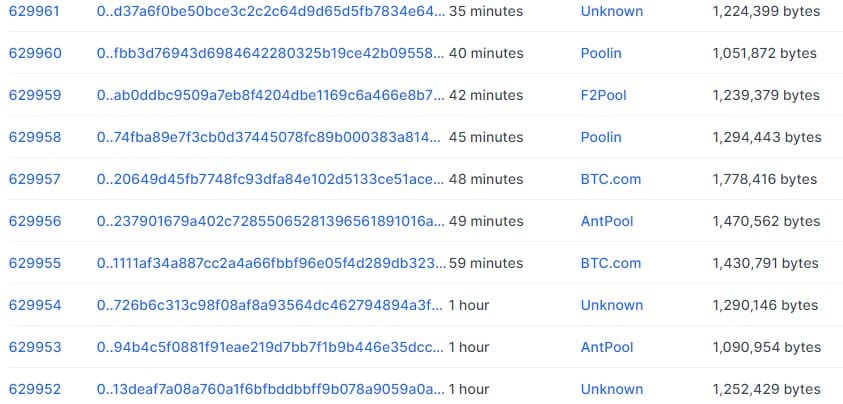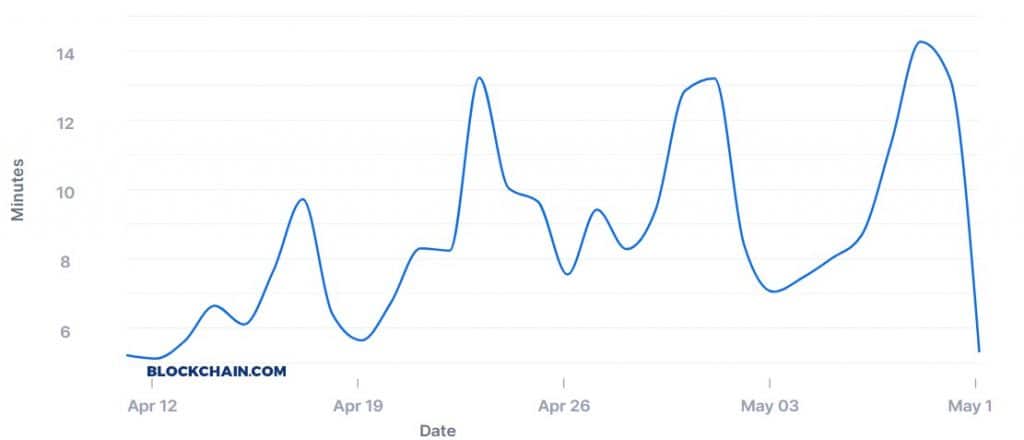The median confirmation time for transactions with miner fees to be included in a mined block and added to Bitcoin’s ledger has decreased substantially on the day that the halving is estimated to take place. If the rate continues as it is, the event will take place a few hours sooner than expected.
10 Blocks Mined in 47 Minutes
According to information from Blockchain.com, the average time for the network to generate new blocks has decreased substantially.
Blocks 629952 through 629961 were mined in precisely 47 minutes, meaning that a block was added once every 4.7 minutes.

Going further, the median confirmation time for transactions with miner fees to be included in a mined block and added to Bitcoin’s public ledger decreased substantially today compared to the day before.

As seen on the above chart, today’s average block time was about 5.3 minutes compared to 13.2 minutes yesterday and 14.2 minutes the day before.
As CryptoPotato reported earlier, the transaction fees on Bitcoin’s network increased with more than 300% days before the halving. This is indicative of users willing to pay more to prioritize their transactions and also of the increased number of unconfirmed transactions.
The aggregate size of transactions waiting to be confirmed also dropped significantly over the past 24 hours, which could be tied with the shorter block times.
Halving Approaches Quicker Than Expected
While there is no set date for Bitcoin’s halving, the estimated moment of it is approaching quicker than expected. This is a direct consequence of the faster block times as the quicker they are mined, the quicker it will hit block 630,000.
The hashrate has also increased substantially throughout the past 24 hours, marking an increase of about 30% since May 9th.
It’s interesting to see if there will be any substantial change in the fundamental metrics of Bitcoin’s network once the halving takes place. As of now, it’s estimated to take place in about 5 hours.
The post 10 Blocks In 47 Minutes: Miners Are Accelerating, Bitcoin Halving Block Can Be Reached Quicker Than Expected appeared first on CryptoPotato.
The post appeared first on CryptoPotato






